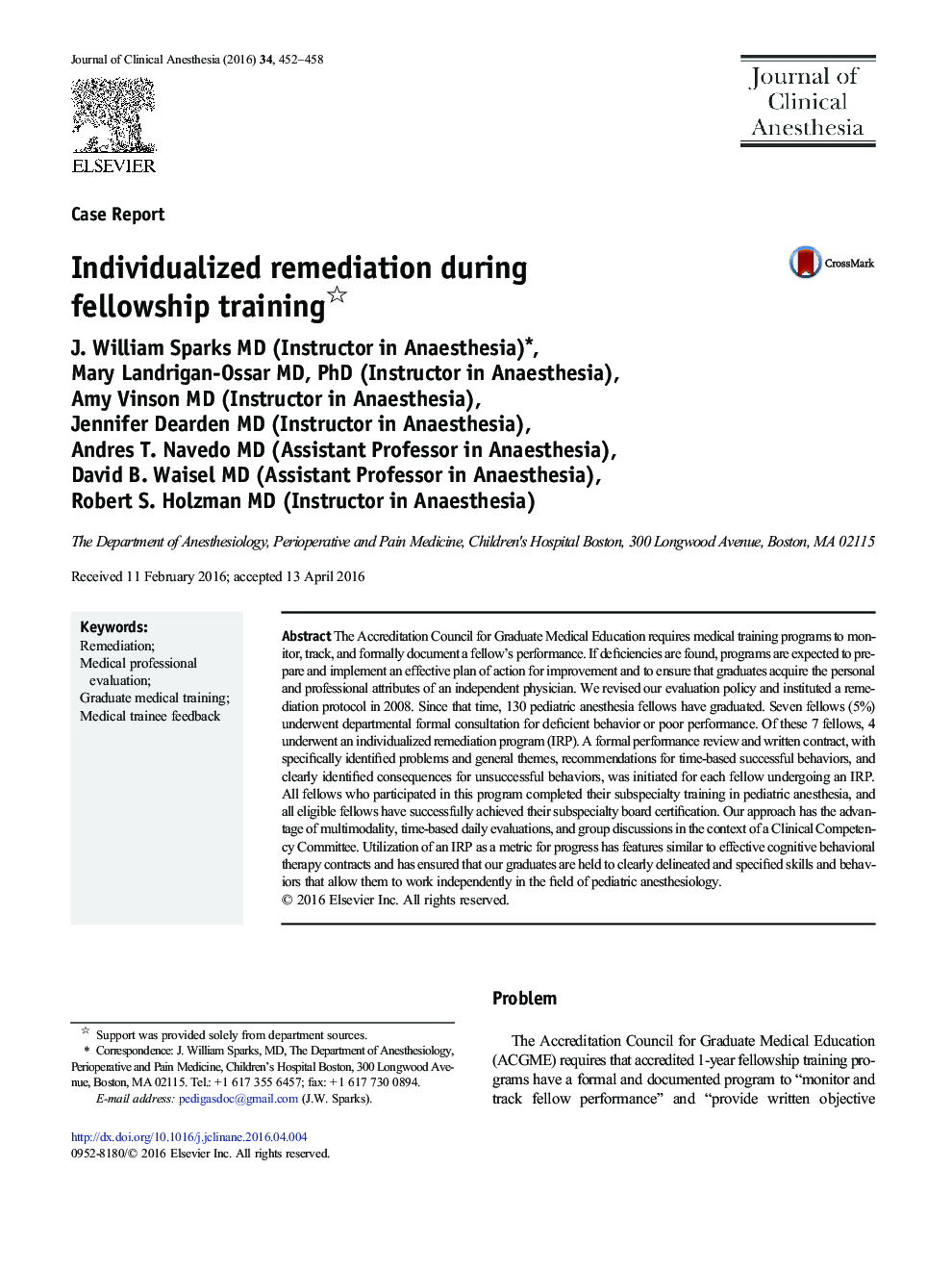| Article ID | Journal | Published Year | Pages | File Type |
|---|---|---|---|---|
| 5884621 | Journal of Clinical Anesthesia | 2016 | 7 Pages |
Abstract
The Accreditation Council for Graduate Medical Education requires medical training programs to monitor, track, and formally document a fellow's performance. If deficiencies are found, programs are expected to prepare and implement an effective plan of action for improvement and to ensure that graduates acquire the personal and professional attributes of an independent physician. We revised our evaluation policy and instituted a remediation protocol in 2008. Since that time, 130 pediatric anesthesia fellows have graduated. Seven fellows (5%) underwent departmental formal consultation for deficient behavior or poor performance. Of these 7 fellows, 4 underwent an individualized remediation program (IRP). A formal performance review and written contract, with specifically identified problems and general themes, recommendations for time-based successful behaviors, and clearly identified consequences for unsuccessful behaviors, was initiated for each fellow undergoing an IRP. All fellows who participated in this program completed their subspecialty training in pediatric anesthesia, and all eligible fellows have successfully achieved their subspecialty board certification. Our approach has the advantage of multimodality, time-based daily evaluations, and group discussions in the context of a Clinical Competency Committee. Utilization of an IRP as a metric for progress has features similar to effective cognitive behavioral therapy contracts and has ensured that our graduates are held to clearly delineated and specified skills and behaviors that allow them to work independently in the field of pediatric anesthesiology.
Keywords
Related Topics
Health Sciences
Medicine and Dentistry
Anesthesiology and Pain Medicine
Authors
J. William (Instructor in Anaesthesia), Mary (Instructor in Anaesthesia), Amy (Instructor in Anaesthesia), Jennifer (Instructor in Anaesthesia), Andres T. (Assistant Professor in Anaesthesia), David B. (Assistant Professor in Anaesthesia),
